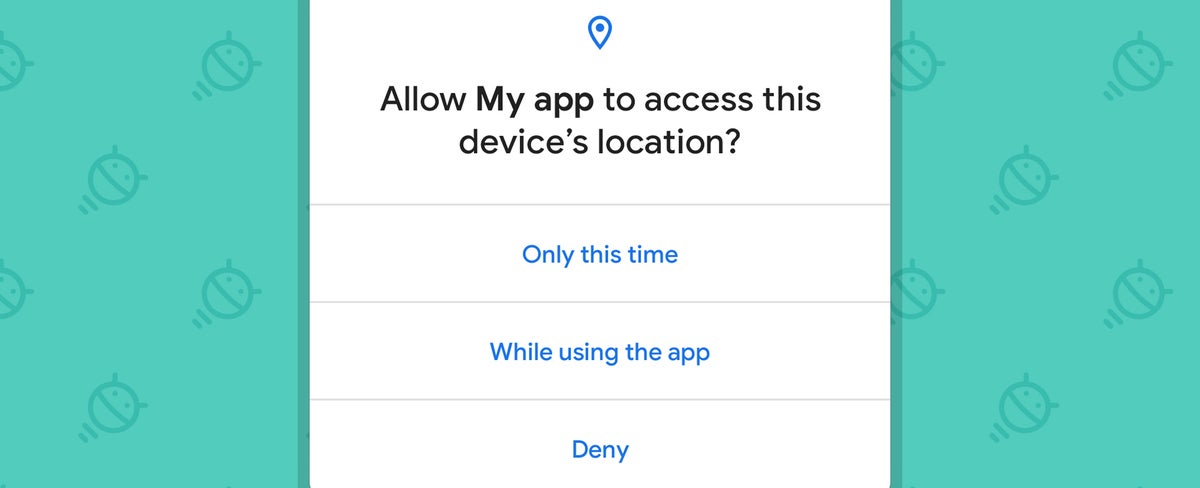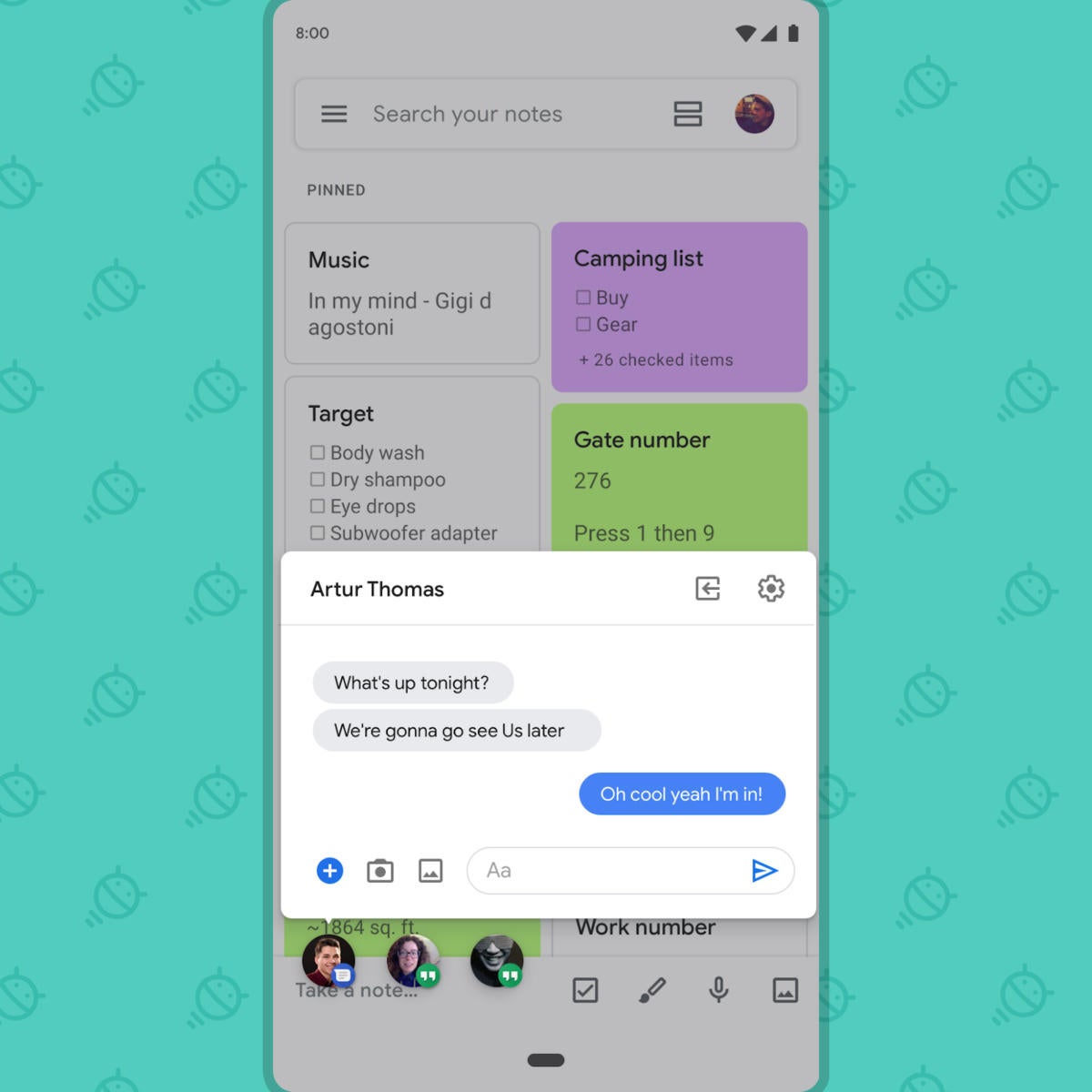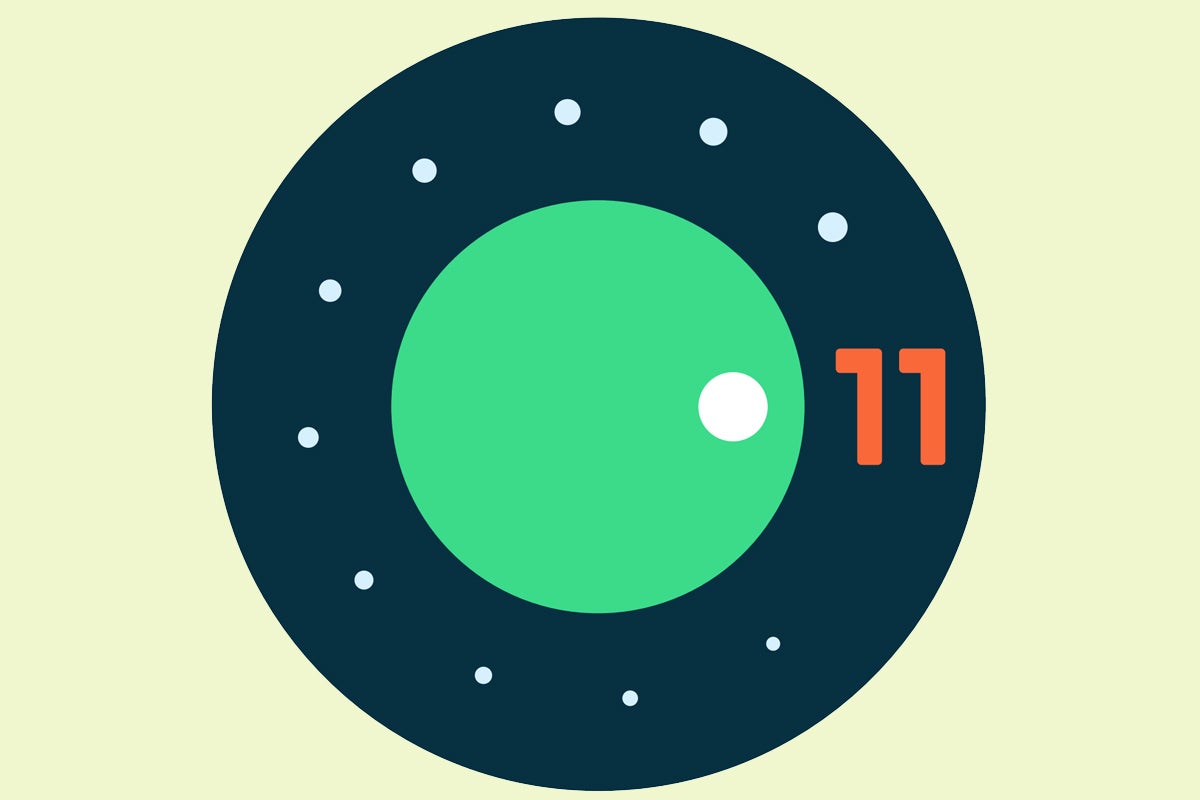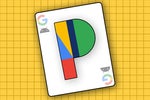Well, I'll be: We're not even all the way through February yet, and Google's next big Android version is already upon us.
Google announced the first Android 11 developer preview on its Android Developers blog Wednesday. To be clear, this is a very early peek at the software, intended explicitly for developers. It isn't something any average person should even think about installing, nor is it likely anywhere close to being a complete representation of what Android 11 will ultimately include.
Still, it's our first peek at what Google's got cookin' for Android in 2020 — and even with some of the marquee items bound to be missing from the picture (remember the late arrival of Android 10's gestures last year?!), it gives us some tantalizing clues about the kinds of improvements we can expect.
Google's official announcement has tons of technical mumbo-jumbo to wade through, and there's even more to the software than what that initial overview includes. (You know the deal by now, right? Sometimes it's the smallest-seeming stuff that has the biggest real-world impact.) But not to fear: I'm here to help sift through both the magnificent and the mundane to find the items worth noting and keeping an eye on as the months progress.
So without further ado, here are the 11 most interesting takeaways from Android 11 so far — with the hefty asterisk that any of this stuff could change between now and the software's final release and that there's almost certainly more to come.
1. Android 11 will give you even greater control over app permissions
Android 10 introduced a major improvement to its app permissions system with the ability to allow an app access to your location only when that app is actively in use — a pretty monumental leap forward from the previous Android setup, which gave you only an all-or-nothing-style choice.
Android 11 builds upon that with the newly added ability to grant an app access your location — or your microphone or camera — only once, for a single session, and then to have that permission automatically revoked as soon as you move away from the app.
 JR
JR In order to achieve something similar now, you'd need the help of a third-party service. Having that function built directly into the operating system and available for anyone is obviously a superior arrangement — and for privacy-focused business users in particular, being able to easily grant a permission for a limited purpose (say, tweeting with your location in place while at a work conference) and then knowing it'll go away on its own when you're done should be a valuable new power to have.
2. Android 11 will be accompanied by a stricter policy on background location access in general
Along with the Android 11 release, Google is introducing a change that'll require developers to actually apply for approval before they're able to access a user's location in the background at all. Google says it's found that lots of apps requesting background location access don't actually need it and could just as easily accomplish what they want by accessing a user's location only when the app is actively in use.
So starting this fall, Google itself will manually authorize apps to have that background location ability — and any apps that Google doesn't approve won't be able to have the permission, period. The change won't be limited to Android 11 devices, but its arrival is absolutely connected to the release.
3. Android 11 will pull even more critical software pieces out of the operating system and make them easily updatable via the Play Store
Speaking of privacy and security, Android 11 will follow Android 10's lead and turn more system-level pieces into standalone apps, in a sense — which means Google will be able to update those elements via the Play Store in a way that reaches all devices immediately, without the need for any manufacturer or carrier involvement.
Android 10 kicked off this process, and Android 11 adds a dozen new modules into the mix — including one that manages privacy control access, one that controls the policies surrounding access to a phone's local storage, and one that handles the evolution of programming interfaces that apps rely on to interact with all user- and device-based data.
That's a whole lot of overly complicated-sounding hooey, I realize, but the short version is that Google's working around device-makers' tendency to take their time with operating system updates and finding more and more ways to cut them out of the picture entirely and instead update critical parts of the software on its own. Thank goodness.
4. Android 11 will bring us Bubbles
Remember Bubbles? We first heard about the feature back in the early days of Android 10 (known as Android Q at the time). It's a standardized, OS-level system that lets apps put elements into small floating bubbles that sit on your screen while you go about other tasks. You can then tap on a bubble to pull up and interact with the app's content on top of whatever else you're doing — and tap the bubble again to minimize it back down into the small circular form.
 Google
Google Bubbles could be used by messaging apps — to pop out ongoing threads so you can move in and out of 'em without having to disrupt your other activities — or they could be used to give you quick access to things like notes, recipes, tasks lists, directions, or almost anything else imaginable.
Personally, I like the idea of being able to tap a special command to compose a new email in a bubble-based window. That way, you could come and go from it as needed while simultaneously being able to look at documents, websites, or whatever else strikes your fancy.
And yes, we've seen this sort of thing on Android before — for quite a while now, in fact! — but by bringing the feature into the software as a native, system-level tool, Google's goal is to make it something that even more apps can utilize easily, without having to come up with their own code, and to create a consistent, privacy-conscious standard for the interface moving forward.
Bubbles will make its debut with Android 11, and it'll be up to developers to embrace it — or not — and show us how valuable it can be.
5. Android 11 will add a new section into your notifications
Android 10 split the notification panel into two sections: one with your main, standard alerts and then a separate section with lower-priority, silent notifications. Android 11 adds a third section into the mix: one that separates out your conversation-based notifications and puts them at the very top of your notification panel.
That means alerts from any texting and messaging apps will always appear above alerts from things like banking apps, photo apps, and other less pressing entities. Hey, a little more organization is never a bad thing.
6. Android 11 will introduce an expanded screenshot-capturing tool — and a screen recorder function
In this early Android 11 preview, capturing a screenshot has the potential, with a teensy bit of tweaking, to pull up a whole new interface with options to share, edit, and extend the image of your current screen surface. That last option (which isn't yet functional) seems to suggest Android 11 will natively allow you to capture a scrolling screenshot in which the final image shifts down to show not only what's on the visible area of your screen but also what's below it — like with a long web page or document, for instance. (We'd previously heard this was in the works for 2020.)
The inaugural 11 preview also includes a new Screen Record option in the Quick Settings panel for capturing a full video of activity on your screen — something that could be quite handy for company demos or, y'know, in-article feature demonstrations. (As of now, you need a third-party tool to accomplish that.)
7. Android 11 will introduce new options for company-owned devices
On the enterprise front, Android 11 gains the ability to detect when a device is owned by a company (as opposed to being a "BYOD"-style, brought-in-by-the-employee sort of product) and then to open the door to extra asset management and security policy implementation as a result.
Basically, if a work profile is added onto the phone via Android's provisioning tools — something that'd indicate the company took the phone out of the box and set it up before handing it off to an employee — the phone gets flagged as being company-owned and then gets treated accordingly. If a work profile is added in any other manner, it's considered a personally owned device, which means it still gets the basic enterprise elements in its work segment but isn't given the full company-property treatment.
8. Android 11 will let you store your driver's license digitally (in theory)
As we'd previously heard, Android 11 will introduce the first platform-level support for digital driver's license storage. Futuristic, eh? Before you get too excited, though, note that most government regulations — including those in the vast majority of U.S. states — don't actually support the use of digital driver's licenses yet, so this won't mean much for most of us right now. But having the technological foundation is an important first step for any societal shift along these lines, and this looks to be an early stride in that direction.
9. Android 11's gonna be all about the G's — 5G, that is
Another point that isn't exactly the most practical part of the picture, given how little impact 5G is actually going to have for most of us in the foreseeable future, but is an important foundational theme in Android 11 nevertheless: With this latest Android release, Google's working to lay the groundwork for developers to tap into 5G connections and offer elevated experiences for users on (theoretically) extra-speedy setups.
The goal, according to Google, is to allow apps to detect a 5G connection and then bring the same experience they'd typically provide only on Wi-Fi into the mobile data realm, with elements like 4K video and exceptionally sharp images.
All righty, then. Good to know. Next:
10. Android 11 will bring back the ability to pin favorites to the top of the system share menu
File this one under "small but significant," for sure: Android's share menu — the standard system-level interface that comes up when you tap the Share command from an app (unless the app is annoyingly using its own custom share interface instead of the system standard) — will once again let you pin your most used destinations to the top of the list for easy ongoing access.
This was a little-known option I loved in earlier versions of Android, but it vanished with the share menu revamp in Android 10. It looks to be poised for a comeback in Android 11, and I couldn't be more excited. (I'm far more excited about that than any of the bigger stuff we just went over, if we're being fully honest with each other. And on a similar note...)
11. Android 11 will let you set a schedule to activate Dark Theme automatically
Last but not least, what might be my favorite early feature of all (and as small-but-significant as it gets!): In addition to being able to activate a system-wide Dark Theme by flipping a switch, as Android 10 introduced, Android 11 will give you the option to schedule your phone's dark mode to go on automatically — either based on specific times you set or on a perfectly sensible sunset-to-sunrise setup.
 JR
JR That's the same set of options that's always been available for Android's Night Light feature, which makes your screen easier on the eyes in dim environments by reducing the amount of blue light — but for some reason, it's been conspicuously absent in Dark Theme up until now.
With Android 11, it appears that omission will be corrected. Hip, hip, hooray.
Now, again, remember: What we're seeing here is only a very early, preliminary preview of what's in the works with Android 11. If past years are any indication, these elements will likely evolve as the months wear on — and we'll likely see at least a few more high-profile additions as the process moves forward (especially once we reach the point of Google's I/O developers' convention in May).
As for timing, it looks like Google's going back to the plan it followed in 2018 and earlier — with a few rough previews intended only for developers between now and May, a first beta sometime in May (which will be the first version available as an over-the-air update for early adopters), then two near-final release candidates toward the end of the summer and a final release sometime between July and September.
The process is officially public, though, and while the canvas may be far from finished, we've got our initial outline of the Android 11 picture. Now let's see how things look as that sketch slowly gets filled in and the subtle colors start to show up.
Sign up for my weekly newsletter to get more practical tips, personal recommendations, and plain-English perspective on the news that matters.

[Android Intelligence videos at Computerworld]



























































































